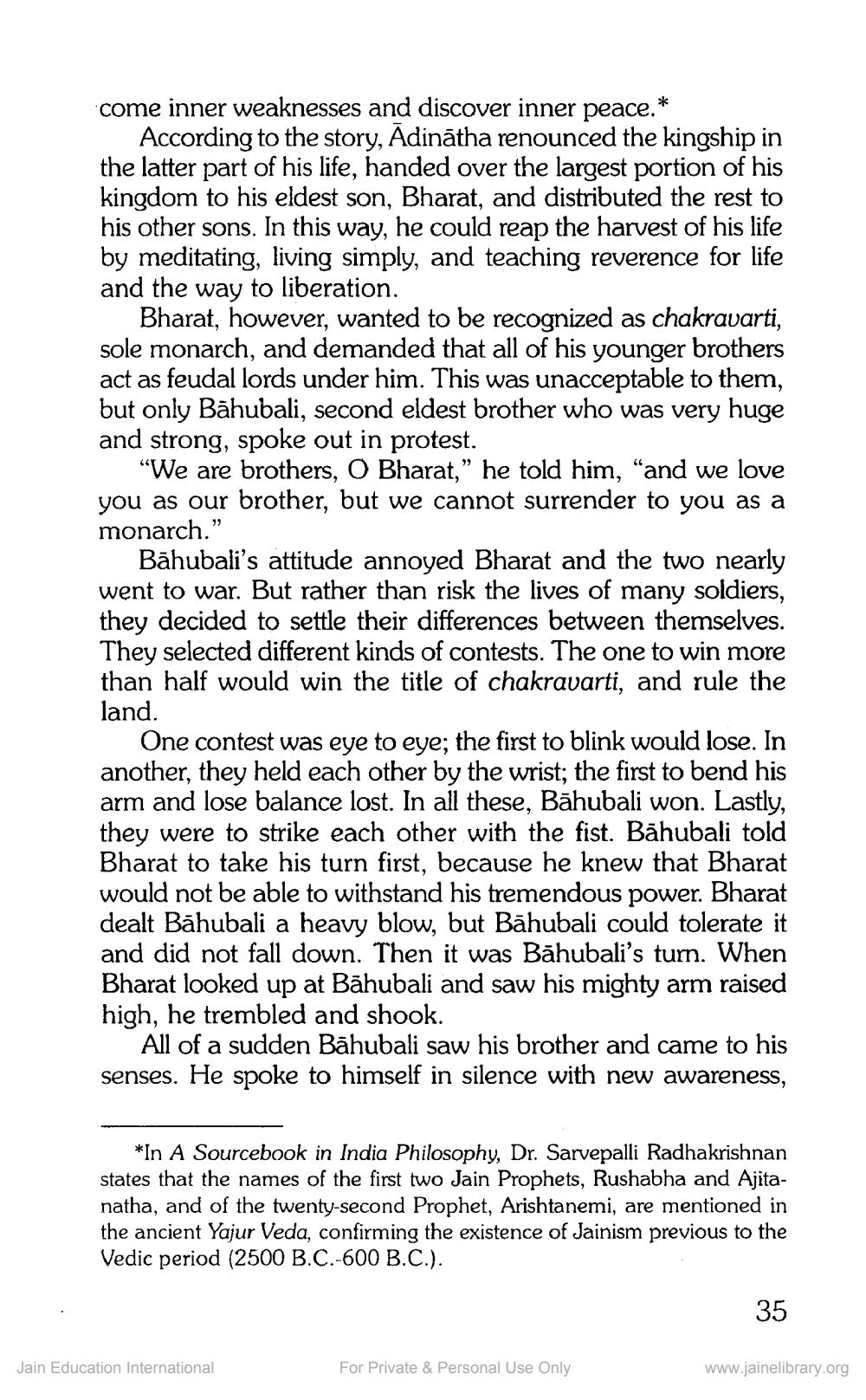________________
come inner weaknesses and discover inner peace.*
According to the story, Adinātha renounced the kingship in the latter part of his life, handed over the largest portion of his kingdom to his eldest son, Bharat, and distributed the rest to his other sons. In this way, he could reap the harvest of his life by meditating, living simply, and teaching reverence for life and the way to liberation.
Bharat, however, wanted to be recognized as chakravarti, sole monarch, and demanded that all of his younger brothers act as feudal lords under him. This was unacceptable to them, but only Bāhubali, second eldest brother who was very huge and strong, spoke out in protest.
“We are brothers, O Bharat," he told him, “and we love you as our brother, but we cannot surrender to you as a monarch."
Bāhubali's attitude annoyed Bharat and the two nearly went to war. But rather than risk the lives of many soldiers, they decided to settle their differences between themselves. They selected different kinds of contests. The one to win more than half would win the title of chakravarti, and rule the land.
One contest was eye to eye; the first to blink would lose. In another, they held each other by the wrist; the first to bend his arm and lose balance lost. In all these, Bāhubali won. Lastly, they were to strike each other with the fist. Bāhubali told Bharat to take his turn first, because he knew that Bharat would not be able to withstand his tremendous power. Bharat dealt Bāhubali a heavy blow, but Bāhubali could tolerate it and did not fall down. Then it was Bāhubali's turn. When Bharat looked up at Bahubali and saw his mighty arm raised high, he trembled and shook.
All of a sudden Bahubali saw his brother and came to his senses. He spoke to himself in silence with new awareness,
*In A Sourcebook in India Philosophy, Dr. Sarvepalli Radhakrishnan states that the names of the first two Jain Prophets, Rushabha and Ajitanatha, and of the twenty-second Prophet, Arishtanemi, are mentioned in the ancient Yajur Veda, confirming the existence of Jainism previous to the Vedic period (2500 B.C.-600 B.C.).
35
Jain Education International
For Private & Personal Use Only
www.jainelibrary.org




